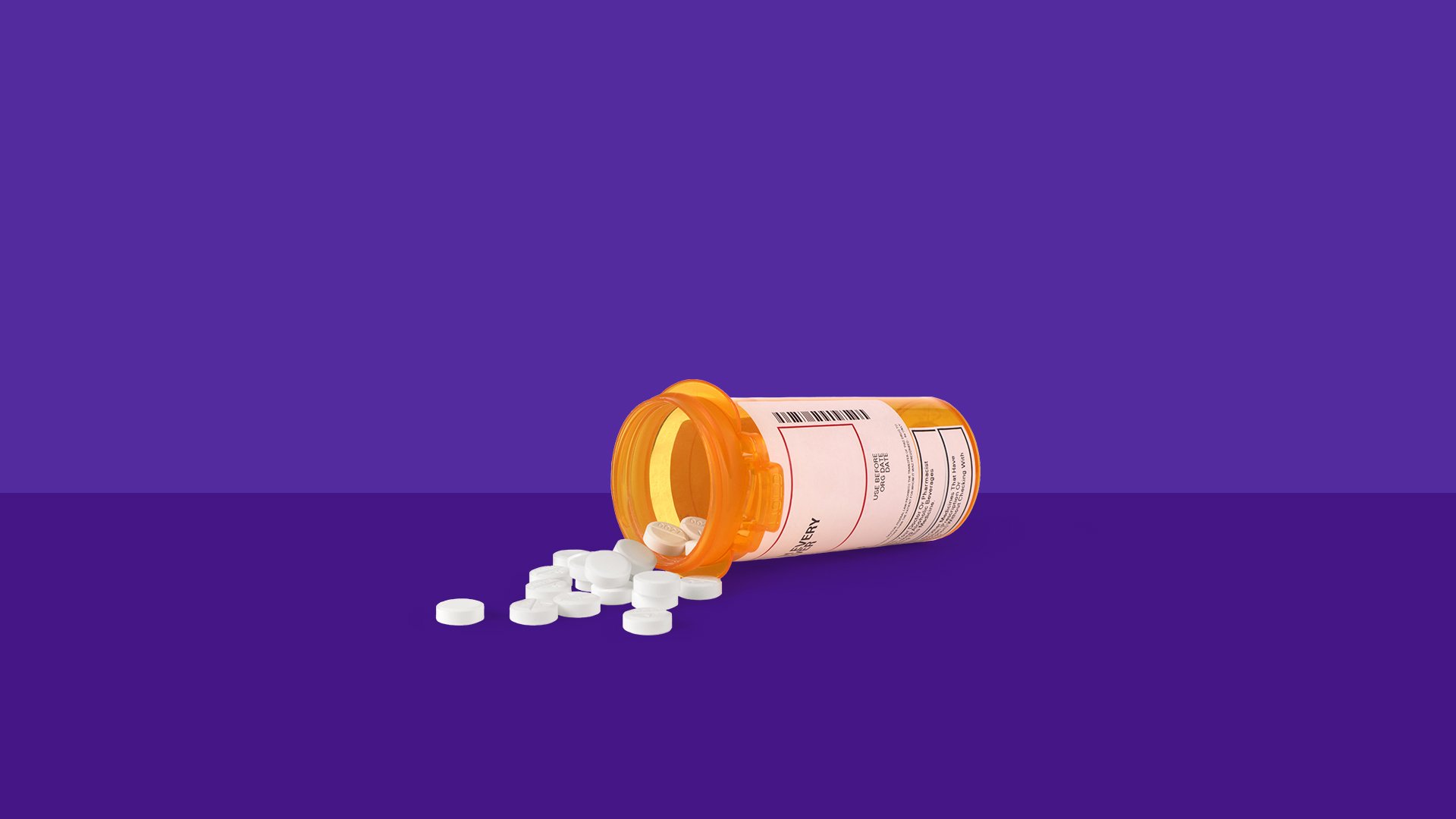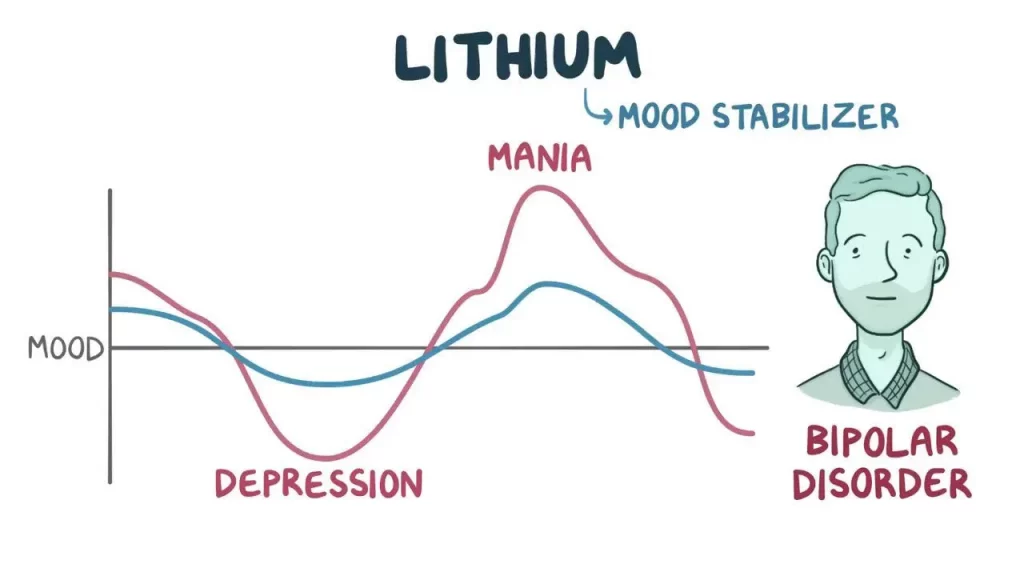What Are the Side Effects of Taking Lithium


Lithium is a very popular mood stabilizer that has been around for years. The side effects from taking lithium can range from none to severe. Lithium is generally prescribed to people who have bipolar disorder. Lithium has helped change a lot of lives for the better by treating the manic episodes of the bipolar disorder.
The most common lithium side effects include gastrointestinal effects (nausea and diarrhea), polyuria/polydipsia, tremor, weight gain, cognitive deficits, sexual dysfunction, and dermatologic effects (acne and psoriasis).
Glycemic side effects–typically nausea and/or diarrhea–are relatively common lithium side effects, recognized from early lithium studies.
Excessive urine and thirst (polyuria and polydipsia) have been consistently found to be one of the more frequent lithium-related side effects, with rates as high as 70% in long-term patients.
Diarrhea, vomiting, sleepiness, muscle weakness, and loss of coordination may be early signs of lithium intoxication, which may occur with lithium concentrations less than 2.0 mg/L.
Even with proper dosage, you can feel a bit drowsy and less mentally sharp while taking lithium. If you are noticeably drowsy and fuzzy while taking lithium, this may be a sign that you are taking a too-high dose and experiencing lithium toxicity.
Lithium can also cause extreme dry mouth and a metallic taste but this is also a common side effect of lithium. Lithium will also cause frequent urination, hand tremors, and excessive thirst.
Lithium can also cause an upset stomach so it might be best to eat before taking it. in some cases, lithium can cause a low sex drive. Other possible side effects of lithium can be hair loss and stomach aches.
Some major side effects of lithium can be neurological symptoms, depression, and mild weakness in the body.
Treating With Lithium
You might experience some short-term side effects when starting treatment with lithium or changing your dosage. It is important to weigh those short-term side effects against the benefits that lithium can provide to your mental health symptoms.
The increased risk for suicide following withdrawal from lithium therapy could result from a rebound depression or withdrawal effects. As stated before the side effects of lithium can range from none to severe.
Studies have shown that lithium is highly effective in both treating symptoms of bipolar disorder and in preventing relapses to bipolar disorder.
Although different medications are used to treat both manic and depressive episodes in individuals with bipolar disorder, lithium is the drug that is used most often.
Although an older drug, lithium is among the most effective medications to treat bipolar disorder.
Lithium is also used to treat certain types of depression, as well as other types of mental illnesses. Lithium is recommended only after other antipsychotic medications have failed to help with schizophrenia;
its efficacy is limited if used alone. Lithium is used mostly as a maintenance medication for the treatment of the bipolar disorder, for stabilizing mood and preventing manic episodes, but may also be useful for acute management of manic episodes.
Lithium may treat acute manic episodes, or a surge, and may aid long-term mood stabilization. Too much lithium helps to decrease episodes of mania, and lowers suicide risk for those with these conditions.
For some people, lithium may help decrease abnormal activity in the brain, causing mania episodes and suicidal feelings.
The side effects of taking lithium will help determine if you need to keep taking it or not.
Monitoring Side Effects of Taking Lithium
That is, with proper monitoring, lithium can be safe as well as effective at controlling mood. With appropriate management and monitoring, medication-assisted therapy for lithium can be a life-changing treatment.
People who have done well on treatment for lithium may choose to continue working with their health care provider and take the drug safely over the long term.
If you do have side effects and your doctor says that it is a side effect of taking lithium then it might be time to try a new medication.
Because the treatment of lithium is associated with negative side effects, and because long-term effects in the body are not sufficiently understood, many patients discontinue the use of lithium medications because of undesirable effects.
There are some who are very good with lithium in terms of controlling symptoms and having very few side effects (or side effects they consider worthwhile to the benefits they are getting from treatment).
However, with monitoring and careful awareness of the early symptoms of toxicity, many people have been able to enjoy the benefits of Lithium without substantial risks.
Using this drug with any of the following medicines can cause an increased risk for some side effects, but using both medicines may be the best therapy for you.
There is no specific treatment that can reverse the effects of Lithium, but there are treatments that can reduce Lithium’s effects.
Taking Lithium With Other Substances
Caffeine can decrease lithium levels and make medications less effective. Less caffeine can make lithium levels go up, and more may make them go down.
Increasing dietary sodium may also reduce lithium levels, prompting the kidneys to excrete more lithium.
Also other medications and substances that a person takes can enhance the side effects of lithium.
Also, taking lithium with other medications can increase the risk of lithium toxicity.
In serious cases, very high levels of lithium in the body can lead to a medical emergency known as lithium toxicity.
Lithium Toxicity
Signs of lithium toxicity include extreme nausea and vomiting, violent shaking of the hands, confusion, changes in vision, and feeling shaky when you stand or walk.
Additional signs of lithium toxicity include shaking, slurred speech, weakness in muscles, and stomach problems such as vomiting and diarrhea.
Lithium intoxication is characterized by confusion, violent shaking (as opposed to a mild shaking that is the typical side effect at therapeutic serum levels), ataxia, falls, seizures, and stomach symptoms such as vomiting and diarrhea.
Lithium is a mood stabilizer that may be useful in bipolar disorder and other conditions, but it is known for producing adverse effects and toxicity.
Lithium can be a life-changing treatment for people who have difficulty managing their bipolar disorder, but using it does have side effects.
Lithium may be a great medication for those who suffer from bipolar disorder, and it may be lifesaving at times, as it has been found to reduce suicide rates, which is a substantial risk for those who suffer from this condition.
Alcohol, Toxicity and Side Effects of Lithium
Alcohol can not only make bipolar worse, it also worsens certain side effects caused by lithium, including dizziness and sleepiness.
According to a paper in the International Journal of Bipolar Disorders, 67%-90% of individuals taking lithium will experience at least one side effect from the medication.
The prescription rates of lithium among patients with bipolar disorder declined over the past decade because of side effects and the burden of toxicities associated with the drug, according to a study published in the International Journal of Bipolar Disorders.
You may have heard that people are taking lithium for some mental health conditions.
Lithium toxicity can have long-lasting effects, which is why it is important to get medical help right away if you think you may be in possession. Lithium toxicity is strongly associated with blood levels of lithium, and may occur with doses near therapeutic levels;
Lithium levels should be monitored carefully during Lithium administration or when individuals are experiencing the medications side effects. Even once a proper dosage of lithium is achieved, full effects may take one to three weeks with this drug.
Always tell your doctor if you are experiencing mild or major symptoms that could be due the the lithium us.
Important
Always talk to your doctor even if the side effects are mild and never stop taking a medication until you talk with your doctor.
Sometimes a lithium dosage may need to be lowered or regulated to remove the side effects. Lastly, always drink plenty of water while taking lithium.
Note
On a personal note, I have been taking Lithium along with other medications for over 20 years with no problems. The most I tend to get is dry moth and extreme thirst.
Lithium affects everybody differently so be sure to talk with your doctor on how well it works for you or if you are showing any major side effects.
Leave a Reply